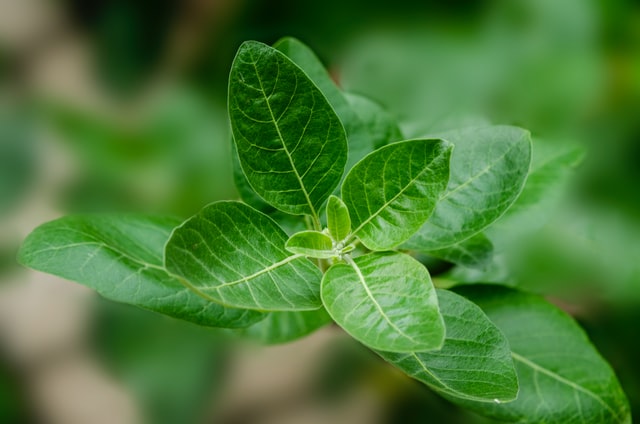What is stress?
Stress. It can be defined in many ways, but perhaps the simplest is: “Stress is the response of the body to any demand”. It’s a normal physiological set of reactions, known by many as the Fight or Flight response. It came in pretty handy as we humans evolved as a species. In fact, we wouldn’t be here today if it weren’t for a robust stress response. Survival aside, there are several other benefits of stress: heightened awareness of our environment, creative problem-solving, focus, the ability to ‘step up’ to a challenge, reserves to get through a tough time, and an opportunity for growth.
Unfortunately, there’s also a downside: the same system that ensures we could outrun a tiger, jump out of the way of a car speeding around the corner, or alert us to the sound of someone breaking into our home, is the same system that escalates when we have bills we can’t afford to pay, an illness that is going around, or a deadline we’re struggling to meet. The stress response is turned on by these worries, and it stays on. hat’s the problem – we start to feel a pervasive hum of anxiety throughout our day, making us restless, nervous, feeling embattled and exhausted. Wired but tired. Sound familiar? We call this adrenal fatigue. The tiny adrenal glands, sitting atop our kidneys, are the workhorse of the stress response. They secrete cortisol, and epinephrine (formerly known as adrenalin) and several other chemicals. These are all useful and necessary – but ideally they are secreted only ‘as needed’, i.e. when we’re in real stress or a challenging situation. Or when we exercise, or when we are growing as a child. But when adrenal hormones are stimulated on an ongoing basis, they are the cause of the health issues and the damage that result from chronic stress.
Over the last couple of decades, stress has become one of the leading underlying factors not only in anxiety, but also in depression, autoimmune disease, high blood pressure, metabolic disorders like diabetes and obesity, chronic inflammation, lowered immunity, and a multitude of sleep issues. And that’s just a handful! When I talk to my patients, they all seem to intuitively know that stress makes many things worse – eczema, digestive problems, focus & learning, relationships, holding down a job….. yeah, it’s everywhere. Wow, it all sounds just terrible, doesn’t it?

ENTER ASHWAGANDHA
Luckily, we have help. Today I want to talk about Ashwagandha, an adaptogen used for over 6000 years to effectively reduce stress & anxiety, provide physiological defense against the effects of stress, increase our resilience and vitality, improve our immunity, and help us recover from stressful times. Traditionally it has been used to rejuvenate, both physically and cognitively, being given to the elderly and the depleted.
Ashwagandha is classified as an ‘adaptogen’, and, by definition, must fulfill 3 requirements:
- It provides non-specific resistance to things like illness and environmental stressors.
- It normalizes physiological responses regardless of the nature of the pathology.
- It’s ‘innocuous’, meaning it has no toxic effect and no negative influence on normal function 1.
This is the most-studied adaptogenic herb in the world. We will talk next time about many of the other adaptogenic herbs and supplements, but for now we will focus on the wondrous Ashwagandha.

BLOOD SUGAR REGULATION and METABOLIC CONTROL
When I see someone in my practice with high blood sugar, excessive fat carried around the middle, poor sleep habits, and a high-stress life, I reach immediately for Ashwagandha. Studies on both the aqueous and the methanol preparations of the root of this herb have shown remarkable effects on the response of blood glucose to stress hormones. Ashwagandha helps your body make better use of glucose, prolonging your resilience (or ‘resistance’) and delaying exhaustion. It does this by enhancing the entry of glucose into your muscle cells, brain cells, and heart cells, rather than staying high in the blood or being deposited into fat. It basically smooths out the highs and lows over time in response to stress2.
Let me explain: at the beginning of the fight-or-flight response, during what’s known as the Alarm Phase, your blood sugar goes screamingly high so that it can be used for your heart, your brain, and your muscles – i.e. to run away from that tiger. When you’re not actually running from the tiger, but facing a stack of bills, or stuck in a traffic jam, your body has less need of the extra glucose and now it has to go somewhere – some of it can be stored as glycogen in your liver, but most of it is going straight into fat storage, and very quickly you’ll feel wiped out. Your brain didn’t get enough fuel. You’ve now bypassed the Resistance Phase of the stress response (the sustained provision of glucose and other compounds to make sure you get plenty of distance from that tiger) and you’ve gone straight to the Exhaustion Phase. When this is happening regularly in your life, you’re going from alarm to exhaustion, again and again, as a pattern. No wonder you can’t sleep, you crave simple carbohydrates, you gain weight ‘inexplicably’, and you’re always tired. Taking Ashwagandha in this scenario is one of the best things you can do for yourself: if a herb can physiologically help with your resilience, then you have more energy and focus for making different choices, like finding coping strategies for stress, prioritizing sleep, and planning a good diet. Everybody knows that when you’re chronically stressed, changing habits is next to impossible. I say let Ashwagandha help you to get there, and kick start your body into better glucose regulation, and therefore better brain function, better sleep, and better weight management.
Here’s my favourite Botanica solution to this scenario: The Perfect Protein Elevated – Adrenal Support. We already know that getting enough protein every day goes a long way to curbing sugar cravings and normalizing metabolism. You add 2000 mg of Ashwagandha to this, and you have a great daily strategy to diminishing the effects of stress on your system.

BETTER RESPONSE TO STRESS and LOWER ANXIETY
A randomized human trial was done in 2012 using a high-concentration, full-spectrum extract of Ashwagandha root as a ‘pre-treatment’ prior to putting people into stressful situations. What they found was incredibly interesting3: An outstanding majority of the Ashwagandha group (compared to the control group) exhibited a clear decrease in their predisposition to the stressful stimuli, meaning they exhibited much less anticipatory anxiety prior to the testing. They also showed decreased anxiety post-stress, as measured by lower cortisol and nor-epinephrine levels, and lower subjective reporting of stress, using a standard stress questionnaire.

ASHWAGANDHA and IMMUNITY
Improving immune function is unquestionably important this year. Lowered immunity is a key feature of adrenal fatigue, and chronic stress. People seem to intuitively know that they are more likely to get sick when they are going through a prolonged stressful period. We call it being ‘run-down’. Ashwagandha once again plays a significant role in helping us prevent or fight infections – keeping in mind that this herb shows almost no toxic effects, this becomes a great herb to give everyone, including kids and older folks. Several studies have shown that Ashwagandha acts as a natural antimicrobial, able to suppress a wide range of bacteria4, and an immunomodulating agent, able to increase macrophage production and phagocytosis of pathogens5, critically important in the fighting of viruses.
Botanica’s Ashwagandha Liquid Capsules will give you a strong, concentrated level of withanolides and saponins (the active compounds in the root), especially if you’re chronically stressed and run-down. For kids, and for better control of dosage (always under professional guidance with your naturopath or herbalist, of course) I would go with Botanica’s Ashwagandha Liquid Herb, basically an Ashwagandha tincture that you take as drops – added to juice or a smoothie, it’s very effective.

THE OVERALL BEAUTY of ASHWAGANDHA
This amazing herb does so much more than we’ve talked about here. Think of all the health issues that persist with chronic stress & anxiety, and you have a list of potential applications for Ashwagandha. But if I can sum up what I see in practice: with daily use of this herb, often over several months, my patients report better resilience to stressful triggers, fewer infections and faster recovery time when you do get sick, deeper sleep, reduced cravings for sugar, better metabolism and energy without feeling over-stimulated, and reduced daily experience of anxiety. Hard to beat that.
REFERENCES
- Hoffman, David. Medical Herbalism: The Science and Practice of Herbal Medicine. Healing Arts Press, 2003. p. 483
- Gorelick, J., Rosenberg, R., Smotrich, A., Hanus, L., and Bernstein, N. 2015. Hypoglycemic activity of withanolides and elucidated Withania somnifera. Phytochemistry, 116. 283-289. https://pubmed.ncbi.nlm.nih.gov/25796090/
- Chandrasekhar, K., Kapoor, J., and Anishetty, S. 2012. A prospective, randomized double-blind placebo-controlled study of safety and efficacy of a high-concentration full-spectrum extract of Ashwagandha root in reducing stress and anxiety in adults. Indian Journal of Psychological Medicine. 34(3). 255-262. https://www.ncbi.nlm.nih.gov/pmc/articles/PMC3573577/
- Owais, M., Sharad, K.S., Shehbaz, A., and Saleemuddin, M. 2005. Antibacterial efficacy of Withania somnifera (Ashwagandha) – an indigenous medicinal plant against experimental murine salmonellosis. Phytomedicine. 12. 229-235. https://www.sciencedirect.com/science/article/abs/pii/S0944711304000789
- Ziauddin, M., Phansalkar, N., Patki, P., Diwanay, S., and Patwardhan, B. 1996. Studies on the immunomodulatory effects of Ashwagandha. Journal of Ethnopharmacology. 50(2). 69-76. https://www.sciencedirect.com/science/article/abs/pii/0378874195013180
